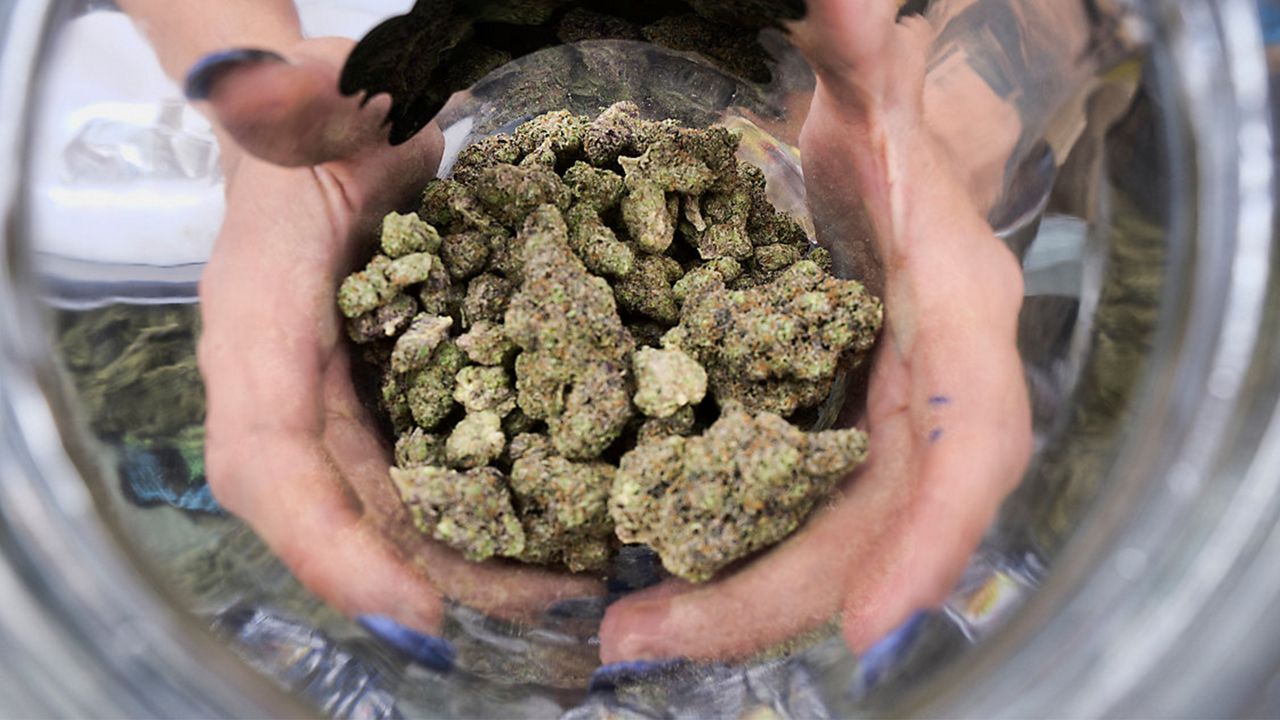REDONDO BEACH, Calif. — Cannabis proponents are using initiatives to push South Bay cities toward commercial cannabis licensing, nearly five years after Proposition 64 legalized cannabis throughout California.
Barry Walker of Dub Brothers Management is the spokesperson for a group that is organizing the petitions. Dub Brothers is a cannabis company with hands in cannabis grow houses, distribution and retailing. Damian Martin, an attorney representing cannabis retailers across Southern California, is also listed as a contact on paperwork filed with Manhattan Beach and Redondo Beach.
“The initiatives are basically designed to get the public involved,” Walker told Spectrum News 1. “Prop 64 was passed four years ago, and we’ve looked into all these South Bay cities — voters were about 65% in favor, but the cities haven’t really done anything.”
The initiatives, as proposed by Walkers’ group, are proposed ordinances with the stated purpose of “accommodat(ing) the needs of medically-ill persons,” as well as “regulat(ing)” commercial cannabis operations within the cities. The initiatives would also ensure that as many as three state-licensed dispensaries would be allowable within the affected cities. Currently, the initiatives are in the process of gathering signatures in the cities of Manhattan Beach and Redondo Beach, though Walker acknowledged that similar petitions are quickly forthcoming for Hermosa Beach and El Segundo.
According to state law, once a petition has gathered enough signatures — at least 10% of the city’s registered voters — the local governing body has three options: it may adopt the proposed initiative without changes; it may submit the unaltered initiative to voters via special election; or it may order a report reviewing the initiative at a forthcoming meeting, after which the initiative must be adopted or sent to voters.
What the cities can’t do, in any way, is change the initiative. According to state law, once the petition is filed, only the courts can make changes. However, the initiative does grant the municipality’s city manager authority to develop operational requirements and enforce regulations.
To this point, each of the four aforementioned cities has banned commercial cannabis sales within their city limits, though each has a range of individual rules on personal cultivation restrictions. Redondo Beach has a cannabis task force in place to recommend potential ordinances to the city; however, it is not clear when that task force will make its recommendations to the city council.
The lack of readily available licensed cannabis retailers and dispensaries has created a gray market within the communities. In recent years, Redondo Beach has had issues with “cannabis churches” — organizations that ask folks to sign membership forms adhering to a cannabis-centric religion, claiming religious freedom, before allowing them to receive cannabis products in exchange for “donations.” (Some of these churches, before being shut down by law enforcement, even offered sale-style pricing for member “donations” on different days of the week, causing further confusion as to their intent.)
Walker argued that the initiative process that he and his colleagues are pursuing would allow for licensed commercial retailers to push the black market out of communities — and would allow cities to better regulate retailers for both public safety and tax purposes.
The proposed ordinances, as written, do not explicitly state how much a city should attempt to collect in tax from a retailer. The bulk of the ordinances do, however, outline the process by which a hopeful licensee would apply for a license to sell cannabis, based on a point system. The proposed point system would award points for a handful of various plans, including a “community benefits plan” that suggests applicants “voluntarily provide a public benefit to a public use.” Those public uses include contributions to local schools, parks, or nonprofit community organizations.
The application process, Walker argues, encourages applicants who have their ducks in a row — though he did acknowledge that organizations like the ones he represents are very likely to be among the first applicants.
“We’re not trying to do anything tricky. I’ll tell you right now, I’m going to submit for licenses…but we’re creating a fair process. We want the city to be involved,” Walker said.
According to campaign finance disclosures, Walker’s Dub Brothers management contributed $1,000 to Redondo Beach Councilman Nils Nehrenheim. Lewis’s firm, South Cord Management LLC, donated $1,000 each to both Nehrenheim and Councilman Todd Loewenstein.
Lewis is also the founder, president and CEO of Catalyst Cannabis, the retailer that has retained Damian Martin as its in-house counsel. A review of recent campaign finance disclosures does not show donations made by Dub Brothers or South Cord Management to Manhattan Beach officials.
Both sets of donations were made less than two weeks after Nehrenheim and Loewenstein won reelection to their seats.
When reached for comment, Nehrenheim said that he had not spoken with Walker. Walker said that he would have to ask his staff who might have spoken with Nehrenheim.
